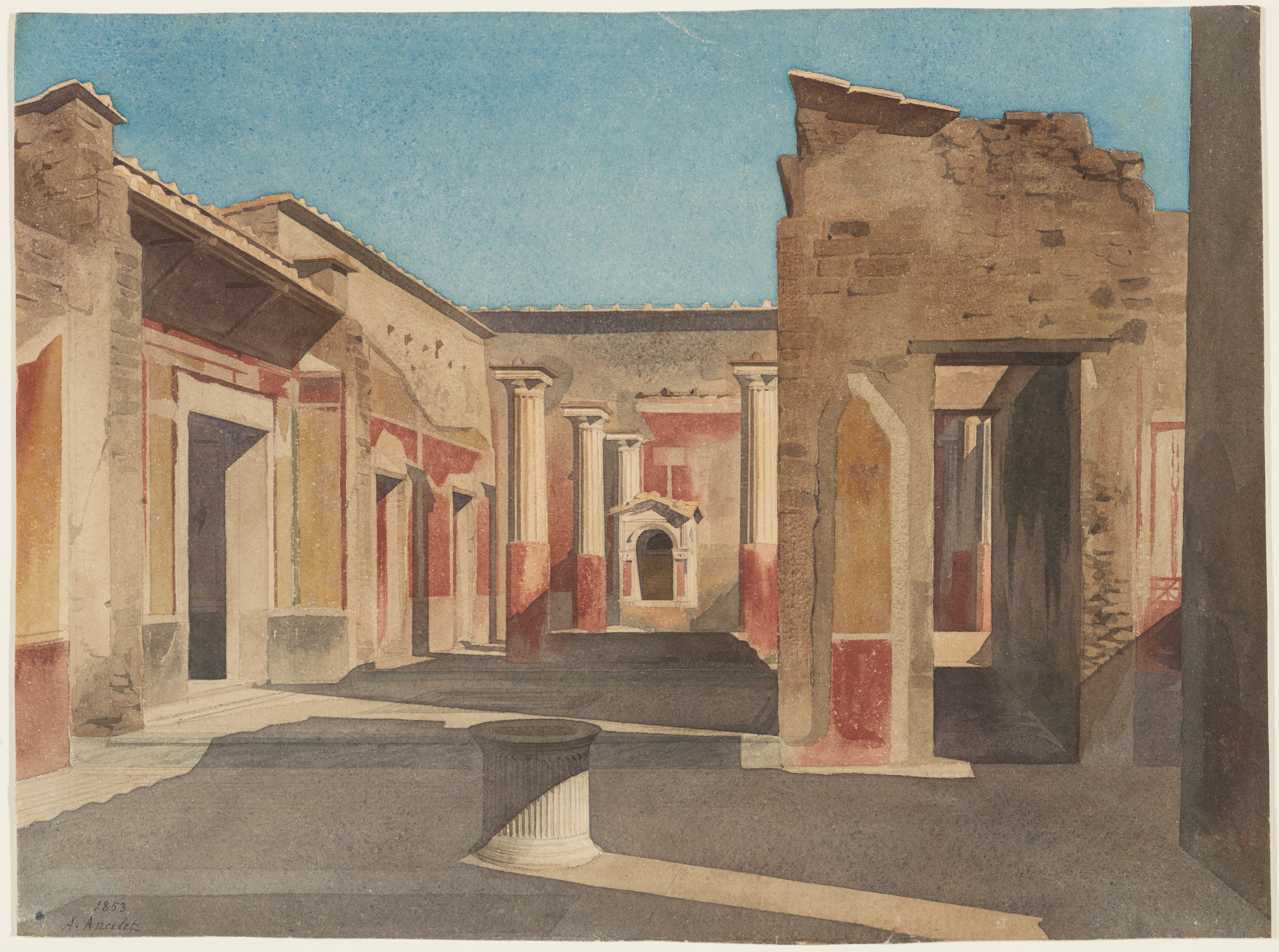
Ruins at Pompeii, by Gabriel-Auguste Ancelet, 1853. The Metropolitan Museum of Art, gift of Roberta J.M. Olson and Alexander B.V. Johnson, 2022.
• On the Cold War origins of the term “Kafkaesque”: “Writing at a time of escalating tensions between the United States and the Soviet Union, Wilson pointedly argued that Kafka should be read as an heir to both Edgar Allan Poe and Nikolai Gogol, the great antirealists of nineteenth-century American and Russian literature.” (Literary Hub)
• The scientific socialism of H.G. Wells: “Science meant for Wells an entire worldview: not the cold, mechanical perspective of social Darwinists like Herbert Spencer, but rather the viewpoint that society should always seek to improve through empirical study and reflection, exposing ignorance to the light of knowledge.” (Jacobin)
• On Pompeii’s enslaved prostitutes. (Aeon)
• The ancient origins of glass. (British Museum)
• Translating the history of Sardinia and Corsica, “a land of ‘bandits clad in sheepskins,’ to quote Cicero,” and to D.H. Lawrence a place with “no history, no date, no race, no offering.” (New York Review of Books)
• “Why did the Declaration vilify the king, and what role did he play in the American Revolution?” The legacy of George III. (National Geographic)
• Revisiting Sylvia Plath’s “The Applicant.” (Poetry Foundation)
• Electricity, propulsion, and force in Marie Corelli’s supernaturalist novels: “If your thought can penetrate and control everything, then it can also penetrate you, leaving you merely transparent, the will-less vehicle of thought, spilling in all directions, rather like radiation.” (The Public Domain Review)
• The failed socialist utopia of Nanterre’s Pablo-Picasso district, the working class neighborhood at the heart of France’s protests. (Le Monde)
• Returned to Egypt: 3,400-year-old fragment of a statue of Ramses II. (The Art Newspaper)
• Unearthed in China: an “entire Bronze Age settlement…spread over eleven hills.” (LiveScience)
• “How will today’s science be viewed in 2123?” (The Guardian)
• This week in obituaries: Victoria Amelina, Carlos Alberto Montaner, CoCo Lee, Christine King Farris, Lilli Voncenz, Jon Haggins, Robert Sherman, Frank Field, Léon Gautier, Susan Love, Alan Arkin, Carmen Sevilla, Sue Johanson, Peter Brötzmann, Peter Hellyer, Lewis Branscomb, Yan Mingfu, David Gilmour, Darren Drozdov, Edward Fredkin, Anthony Bouza, Paul Justman, and Leandro De Niro-Rodriguez.